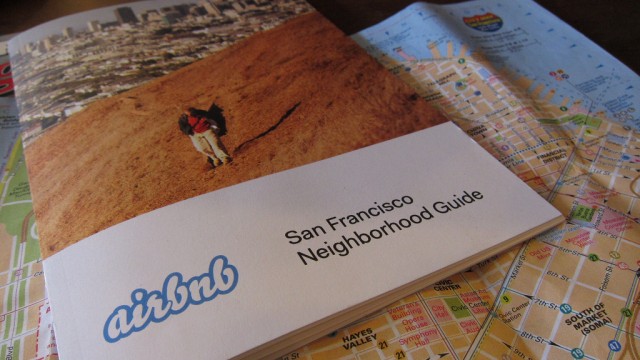
If you're used to traveling to San Francisco and saving on hotel bills by renting accommodations through Airbnb, time to start preparing for an increase. The online home rental service has agreed to pay San Francisco's 14 percent hotel tax, addressing at least one concern of critics who say the company is flouting regulations. Under the plan, Airbnb would collect taxes directly from guests as an extra charge on their bill.
The San Francisco-based company, which connects travelers with people renting out their homes, said it will begin remitting taxes to the city by the summer. Out of the 32,000 cities worldwide where Airbnb operates, San Francisco and Portland, Ore., would be the first ones where it collects hotel taxes. The company agreed last week to collect taxes in Portland. The company is also in negotiations over collecting taxes with New York state.
"We have repeatedly said that we believe our community in San Francisco should pay its fair share of taxes," David Hantman, the company's head of global public policy, wrote in a blog post. The move could potentially add millions to San Francisco coffers and help Airbnb avoid conflict with regulators — especially if the company seeks to go public.
Airbnb has been criticized by city officials, landlords and hotels, who say it ignores local regulations, including the hotel tax and a ban on renting residential spaces for less than 30 days. San Francisco's treasurer ruled in 2012 that the online home rental services like Airbnb are subject to the tax. At the time, the company strongly resisted. "Laws (like San Francisco’s hotel tax) were written long before the Internet or any of these activities were conceived," an Airbnb spokesperson said after that ruling. "Innovative new models that allow San Franciscans to generate additional income should be addressed by innovative laws and policies -- not stifled by 40-year-old regulations."